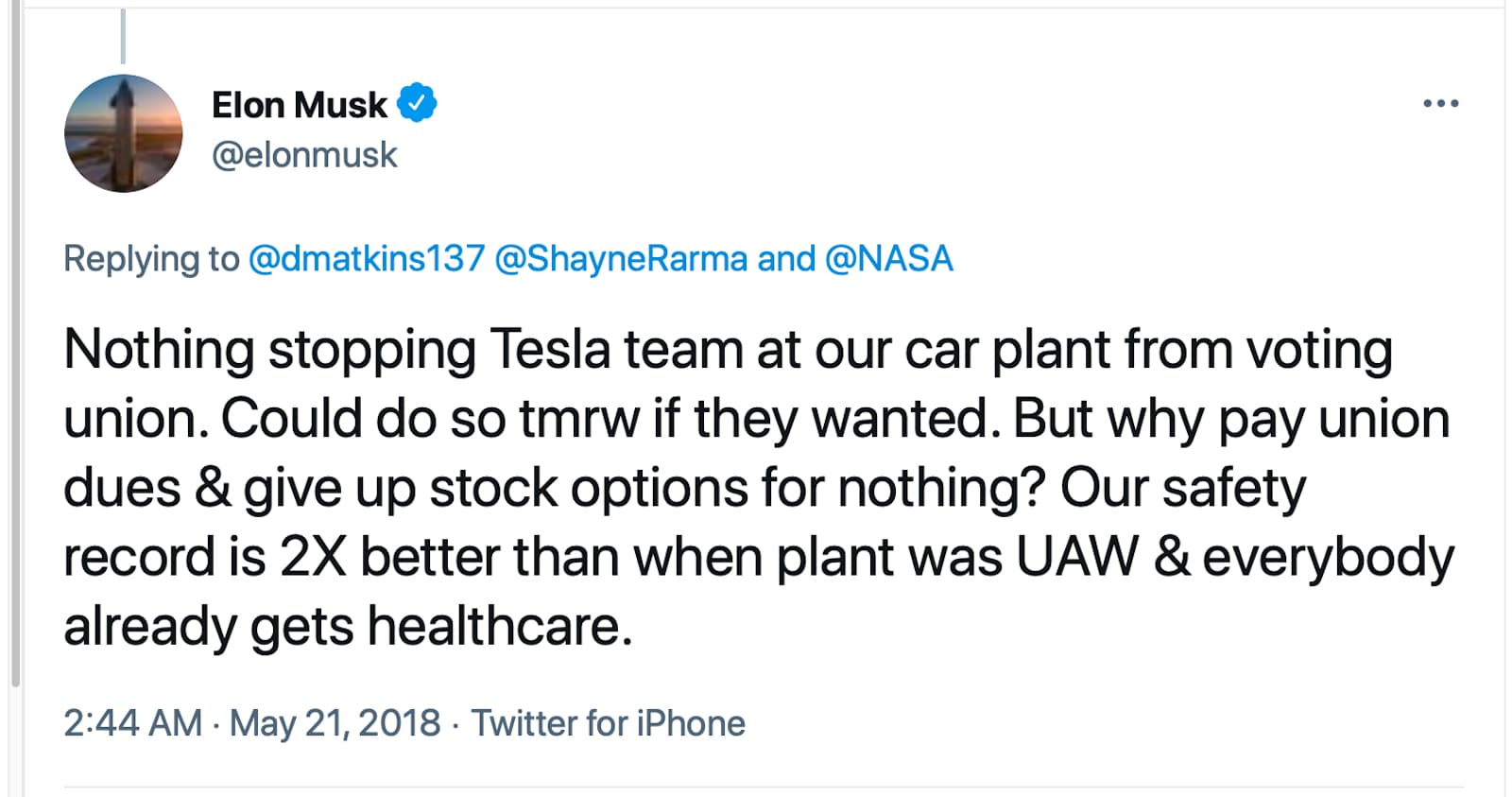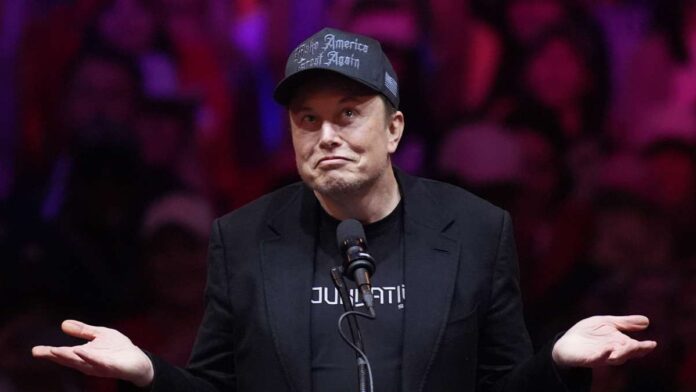In a pivotal ruling for employee rights and free speech boundaries, a federal appeals court has ruled in favor of Tesla CEO Elon Musk regarding a 2018 social media post. The post, which had sparked controversy during a unionization effort at a Tesla factory, was initially deemed by the National Labor Relations Board (NLRB) as an illegal threat to employee stock options. However, in a close 9-8 decision, the 5th U.S. Circuit Court of Appeals determined that Musk’s message was protected under the First Amendment. This recent decision not only redefines corporate limits on public speech concerning labor rights but also mandates further review by the NLRB on related employee terminations.
The case centers around a tweet posted on May 20, 2018, during an organizing effort by the United Auto Workers (UAW) at Tesla’s Fremont, California, facility. Musk tweeted: “Nothing stopping Tesla team at our car plant from voting union. Could do so tmrw if they wanted. But why pay union dues and give up stock options for nothing? Our safety record is 2X better than when plant was UAW & everybody already gets healthcare.” Union leaders interpreted this message as a veiled warning that voting for union representation might jeopardize employees’ stock options, sparking the NLRB’s initial action. However, the recent ruling marks a significant step in redefining how freedom of speech interacts with corporate expressions of employee relations.
A Divided Decision: First Amendment vs. Labor Rights
The legal journey has been marked by multiple reviews and heated debate. Initially, the NLRB ruled Musk’s tweet as an impermissible threat against employees, arguing that his remarks discouraged workers from exercising their right to unionize by implying negative financial consequences. Following the NLRB’s stance, a smaller panel of the 5th Circuit Court upheld the decision in favor of the NLRB, asserting that Tesla should reinstate an employee who was terminated for union-related activities and provide back pay.

Tesla appealed, and the case was eventually taken up by the full 5th Circuit, resulting in an in-depth 11-page opinion siding with Musk and Tesla. The unsigned opinion ruled that Musk’s tweet fell under constitutionally protected speech and didn’t meet criteria for restricted forms of communication, such as obscenity or perjury. The ruling suggested that even if employees found the statement concerning, it did not constitute coercive language under the law. Furthermore, the court directed the NLRB to reconsider the order for reinstating the fired employee, citing insufficient evidence that the supervisor’s termination decision was driven by anti-union sentiments.
Yet, the decision was far from unanimous. Judge James Dennis authored a detailed 30-page dissent on behalf of eight judges, critiquing the ruling as a departure from labor protection precedents. He argued that Supreme Court rulings historically deny First Amendment protection to employer speech that could be construed as threatening or coercive in the context of union organization efforts. Judge Dennis further noted that the motives behind the employee’s termination were irrelevant under the circumstances, as the worker had been dismissed after refusing to disclose union-related information during an interrogation. The dissent underscores an ideological split over whether corporate leaders’ public comments should be held to stricter scrutiny in labor-sensitive contexts, challenging the broader interpretation of free speech rights in employment.
Implications for Corporate Speech and Employee Rights in Future Labor Disputes
The court’s ruling sets a potentially impactful precedent for corporate leaders and their communication about labor movements within their organizations. By extending free speech protections to Musk’s tweet, the ruling suggests a loosening of constraints around what employers can publicly say about union activities. The case raises questions over the balance between open communication from corporate leadership and the preservation of a pressure-free environment for employees considering unionization.
Yet, critics argue that the court’s decision could create ambiguity around what constitutes an implicit threat versus a simple opinion. If upheld, this precedent may complicate the NLRB’s role in enforcing the National Labor Relations Act (NLRA), specifically regarding employee rights in organizing efforts. Traditionally, the NLRA is designed to protect employees from perceived intimidation, but this ruling implies that statements from high-profile executives, even with financial implications, could be seen as legitimate expressions of opinion rather than veiled threats. Some labor advocates fear this could lead to a chilling effect on unionization if employees feel that public corporate opinions may affect their benefits or job security.

For Tesla, the ruling provides immediate relief from the prospect of re-evaluating stock option practices or reinstating terminated employees. However, the NLRB will still conduct a further review to assess if the worker in question was unlawfully dismissed due to union-related activities. With the case potentially progressing to the Supreme Court, a final resolution may influence federal labor policy and judicial interpretations of corporate free speech for years to come.
While the court’s decision grants Musk freedom to communicate his views on union-related issues without NLRB intervention, it also raises questions over employee autonomy in labor movements. If upheld, this case may serve as a benchmark for balancing corporate speech and labor rights, potentially altering the landscape for tech industry employees and others where union presence remains a contested issue.

